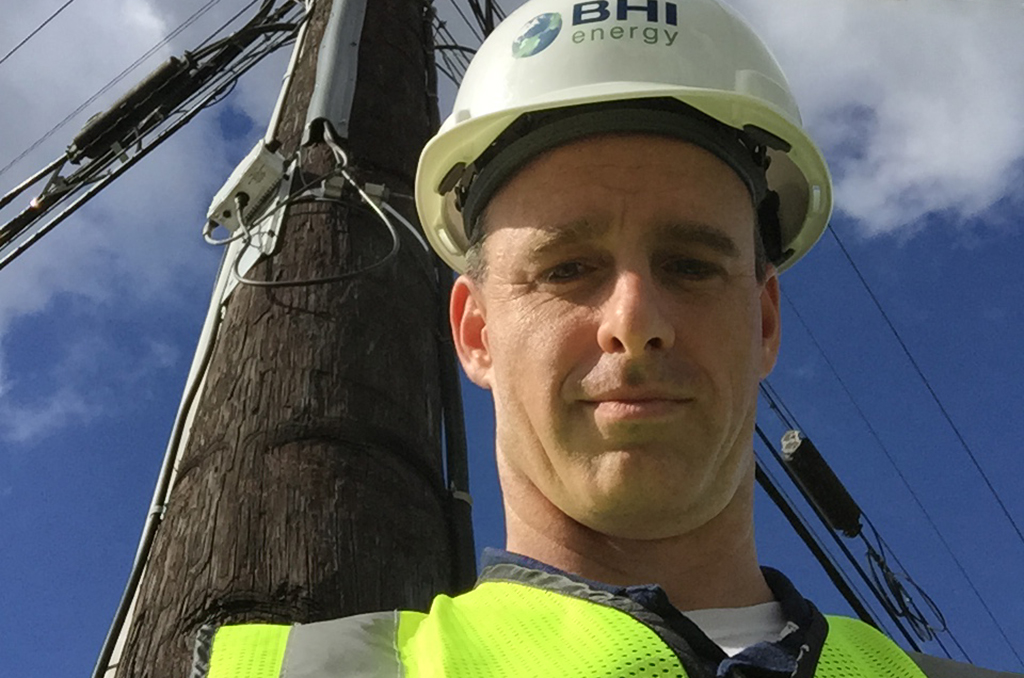James Bustraan was cruising through his classes, on his way to majoring in accounting, when a math professor stopped him in his tracks.
“I was taking a ‘Calculus for Business’ class when the professor pulled me aside and said it would be a shame if I didn’t go into engineering or a heavy math-related field,” recalls Bustraan.
Bustraan had to think long and hard about changing his major — and his life plan. After all, he wasn’t a 19-year-old recent high school grad. He was a returning student, in his late 20s, and he was already taking some upper-division accounting classes. Changing his major to engineering would set him back more than a year.
“It was difficult changing majors, but I had to go back and get pre-req classes for engineering,” said Bustraan. “I was stuck an extra year and a half going back and getting the classes I needed.”
As he waded through calculus and physics classes, Bustraan considered transferring to UCF to complete his engineering degree. But when he tried, he discovered that he’d already accumulated so many credit hours that he had trouble getting financial aid at UCF.
So Bustraan decided to stay put and earn his bachelor’s degree in electrical and computer engineering technology at Valencia College. (For more information on the program, click on the electrical and computer engineering technology information page.)
“I looked at the classes at Valencia and decided to stay with Valencia,” he said. After talking to other Valencia engineering students and graduates, he felt it was the right move. “Every graduate I’ve talked to has gotten a job, doing some kind of engineering work,” Bustraan said.
So he continued his studies, most of them on West Campus. In addition to his engineering coursework, Bustraan became active in the Valencia chapter of the Florida Engineering Society and Valencia’s chapter of the IEEE (Institute of Electrical and Electronics Engineers). Because he was taking between 15 and 18 credits each semester — trying to complete his degree as soon as possible –Bustraan didn’t have time to get an internship. But the connections he made through IEEE proved invaluable.
As he neared graduation, he received an email from the human-resources representative for Power Grid Engineering, a Winter Springs firm that designs substations for utility companies. Bustraan had met her at the Orlando IEEE meetings he attended each month and, after he graduated, PGE offered him a computer drafting position. “I graduated in May 2014 and had a job within the same month,” said Bustraan. “I was obviously excited. The job paid $18 an hour and, for me, was like an internship. After it was all said and done, basically they gave me a position just to get my foot in the door. I spent the next four months working hard.”
During that time, he learned about AutoCAD, substation engineering, and power system design. Within a few months, PGE offered him a full-time engineering position.
However, Bustraan had already been looking for engineering jobs. “Obviously the CAD technician was a good job, but it’s not what I went to school for,” he said. Although PGE had an opening, he also had a competing offer — working in West Palm Beach as a computer engineering technician at BHI Energy, one of the nation’s largest nuclear energy companies.
“Thanks to a lot of preparation and experience through Valencia and my job at PGE, I had a great interview and (BHI) offered me my current position,” a job that entails a mix of computer design, field engineering, electrical engineering, and civil engineering.
Now 33 and three months into his new job, Bustraan is thrilled. The job pays more than $80,000 a year, but more important, he feels like it’s a great fit. “The job is challenging and fun. I absolutely love it,” says Bustraan. “It’s a blast.”

Comments are closed.